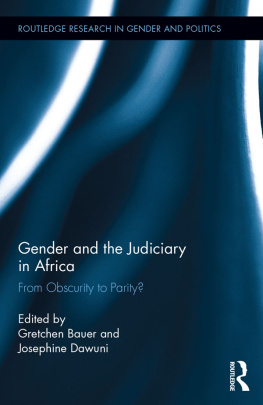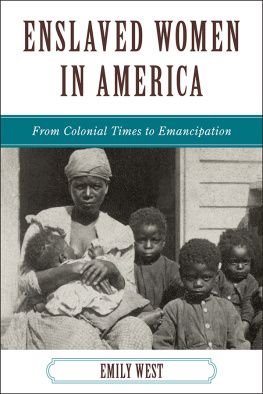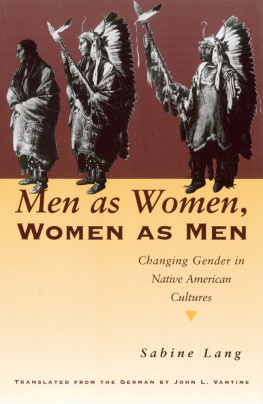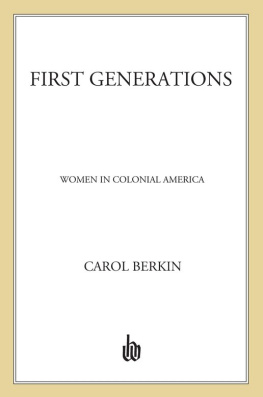Profit and Passion
Profit and Passion
Transactional Sex in Colonial Mexico
Nicole von Germeten
UNIVERSITY OF CALIFORNIA PRESS
University of California Press, one of the most distinguished university presses in the United States, enriches lives around the world by advancing scholarship in the humanities, social sciences, and natural sciences. Its activities are supported by the UC Press Foundation and by philanthropic contributions from individuals and institutions. For more information, visit www.ucpress.edu.
University of California Press
Oakland, California
2018 by Nicole von Germeten
Library of Congress Cataloging-in-Publication Data
Names: Germeten, Nicole von, author.
Title: Profit and passion : transactional sex in colonial Mexico / Nicole von Germeten.
Description: Oakland, California : University of California Press, [2018] | Includes bibliographical references and index. |
Identifiers: LCCN 2017045678 (print) | LCCN 2017046755 (ebook) | ISBN 9780520969704 (ebook) | ISBN 9780520297296 (cloth : alk. paper) | ISBN 9780520297319 (pbk. : alk. paper)
Subjects: LCSH : ProstitutesMexicoHistory.
Classification: LCC HQ 151. A 5 (ebook) | LCC HQ 151. A 5 G 47 2018 (print) | DDC 306.740972dc23
LC record available at https://lccn.loc.gov/2017045678
Manufactured in the United States of America
27 26 25 24 23 22 21 20 19 18
10 9 8 7 6 5 4 3 2 1
Dedicated to my parents, Joan and Jim von Germeten
Contents
Acknowledgments
In this short acknowledgment, I can list only a few of the many individuals who influenced this project. First, I am very grateful for the kindness of my students and colleagues at the School of History, Philosophy, and Religion at Oregon State University. This especially includes members of the writing group organized by Marisa Chappell and Kara Ritzheimer, who read and edited several chapters with their typical energy and intelligence. Robert Nye continued to give his very useful feedback and dependable editing, and I am so lucky to benefit from the friendship and hospitality of both Bob and Mary Jo Nye. Trina Hogg offered very helpful theoretical suggestions in the final revisions phase. Ben Mutschler and Dwanee Howard facilitated funding for research travel. The OSU Center for the Humanities, under the direction of David Robinson, awarded me a term off teaching to begin the writing process and opportunities to present my work. Joseph Orosco hosted an enlightening conversation with his session on sex work today. Undergraduate students in my History of Sexuality and Latin American History classes helped me by reading and discussing drafts of these chapters. I had the great fortune to enjoy the humor, intelligence, and impressive discipline of graduate students Aimee Hisey and Abby Perkins. They both helped and supported me at a moments notice and made me laugh for years while I worked on this book. Aimee especially deserves thanks for her work on the bibliography, footnotes, and . She, nor anyone else acknowledged here, bears no responsibility for any errors in this text.
Outside of Oregon, I enjoyed insightful editing and content suggestions from Marie Kelleher, Kristen Block, Martin Nesvig, and Ken Mills. Marie also kindly invited me to present at Cal State Long Beach, as did John Hunt at Utah State University. Linda Arnold and Karen Melvin provided valuable references for archival material that I would not have found without their guidance.
At University of California Press, I am grateful for the enthusiasm and support of Bradley Depew and Kate Marshall, as well as Margaret Chowning. I humbly thank Pete Sigal and Zeb Tortorici for reading the manuscript draft that they received and offering suggestions that greatly improved the book.
I appreciate my ongoing conversations with Michael Lopez about and his perspective on the topic of the book, as well as many other things. Thank you to Inez for your exceptional kindness and humor and your thoughtful insistence on my dedicating this book to my parents.
Introduction
There are passionate whores and polished whores, painted whores and illustrious whores, whores of reputation and those who have been condemned.... There are some who work at night, others who work by day.... There are eastern whores, western whores, northern whores, whores who wear disguises, drunk whores, reserved whores, whores that range in age from very young to very old. There are rising whores and falling whores, whores with hymens and whores without, Sunday whores, and whores who wait until Saturday to wash.... There are perfect whores, secret and public whores, devout whores, hypocritical whores, whores young and old, whores whose pockets jingle when they walk. There are pandering whores and modern whores, mature whores and celestial whores, and those who try to live a good life in shut up houses, as well as honest women who try the trade according to their need.
In a picaresque tale set in early-sixteenth-century Rome, a scene opens with La Lozana Andaluza (her name, loosely translated, means the lusty Andalusian woman) relaxing in bed with a client. As a single woman and migre from Spain, La Lozana wants to learn from her satiated lover about the life that concubines lead in this province. After hearing his response, the litany quoted above, La Lozana expresses fatigue with this list of the seemingly countless putas whores) on the Roman streets, as thick as bees in a beehive.
This book takes for granted that Spanish and Spanish American literary and legal understandings of gender and sexuality have vital importance in the context of the rise of global imperialism. Spains New World viceroyalties, especially the geographic region that is now Mexico (a section of the Viceroyalty of New Spain),
To return to La Lozana Andaluza, this woman represents more than an item available in the bountiful street catalogue described in the opening quote. On the contrary, her fictional personality brings up the question of sexual agency for women in the past. The tale of her life revolves around her shaping her own destiny by traveling from Spain to Italy. What I want, she declares, is for [men] to need me, not for me to need them. I want to live by my own labor.... I only want to live by my profession. To that end, La Lozana puts a green branch behind her ear to indicate that she is a ramera (whore, from the Spanish word ramo or branch) and displays herself at a lattice window, but she shows only her hands. She manages to make a living off her lovers, in the form of fine meals, gifts, and cash. She also helps other couples come together in the classic medieval occupation of bawdry (alcahuetera), prospering financially even though, with a shocking lack of conventional femininity, she claims that she has forgotten how to spin.
Inspired by these quotes, this book could celebrate the personal agency of La Lozana and her Mexican peers, seducing readers with their tenacious survival skills and courageous resistance to oppressive viceregal gender hierarchies. But Ann Laura Stoler warns historians against charmed accounts that seduce and comfort. She instead suggests a rough and charmless colonial history track... [that] might dispense with heroessubaltern or otherwise. She proposes good and evil as historical rather than transcendent categories.
The various written words used in this book inscribe labels of immorality, difference, and disease on womens bodies. It is open to question if these differences are biological or universal, but they do require cultural marking within a specific historical and social context. In her work on inscribing and reading inscriptions on bodies, Elizabeth Grosz argues that the real material body does not exist but that representations and cultural inscriptions quite literally constitute bodies. The body and writing intersect, creating objects that read as various past and present systems of social coercion, legal inscription, and sexual and economic exchange. Textualizing the body involves several people who contributed to the writing of every paper file: the women under discussion, other deponents, the scribe and court officials present, and, of course, the historian herself. However, what remains for the historian to read and re-narrate is the paper where these individuals inscribed their own and others bodies, not the inscribed body itself.









